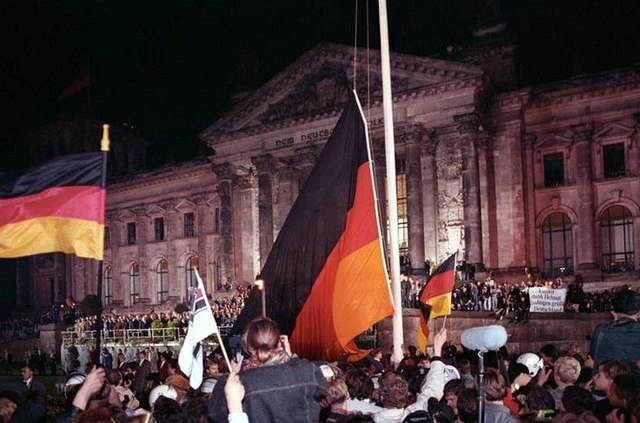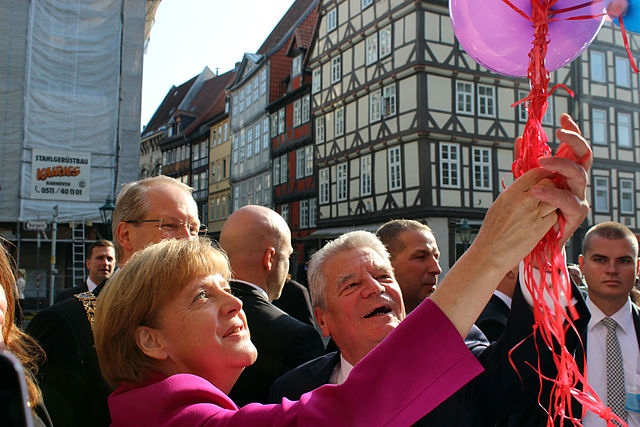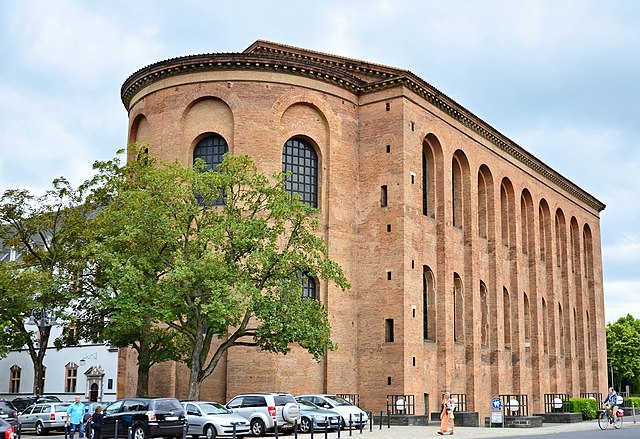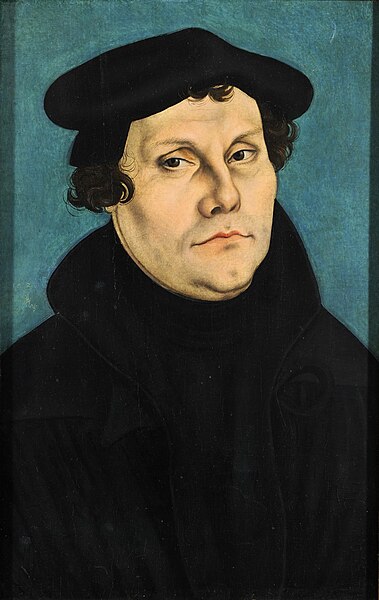German Unity Day is the National Day of Germany, celebrated on 3 October as a public holiday. It commemorates German reunification in 1990 when the German Democratic Republic joined the Federal Republic of Germany, so that for the first time since 1945 there existed a single German state. German Unity Day on 3 October has been the German National Holiday since 1990, when the reunification was formally completed.
The flag of unity at midnight of 3 October 1990 in front of the Reichstag
Chancellor Angela Merkel and President Joachim Gauck at the Bürgerfest (German Unity Day festivities) in Hannover in 2014
Germany, officially the Federal Republic of Germany, is a country in the western region of Central Europe. It is the second-most populous country in Europe after Russia, and the most populous member state of the European Union. Germany lies between the Baltic and North Sea to the north and the Alps to the south. Its 16 constituent states have a total population of over 84 million, covering a combined area of 357,600 km2 (138,100 sq mi) and sharing land borders with Denmark to the north, Poland and the Czech Republic to the east, Austria and Switzerland to the south, and France, Luxembourg, Belgium, and the Netherlands to the west. The nation's capital and most populous city is Berlin and its main financial centre is Frankfurt; the largest urban area is the Ruhr.
Basilica of Constantine in Trier (Augusta Treverorum), built in the 4th century
Martin Luther, born in Eisleben in 1483, challenged the indulgences of the Catholic Church, giving rise to the Reformation and Protestantism.
Adolf Hitler, dictator of Nazi Germany from 1933 to 1945
The Berlin Wall during its fall in 1989 and the Brandenburg Gate (background) was one of the first developments in the end of the Cold War, leading ultimately to the dissolution of the Soviet Union.






